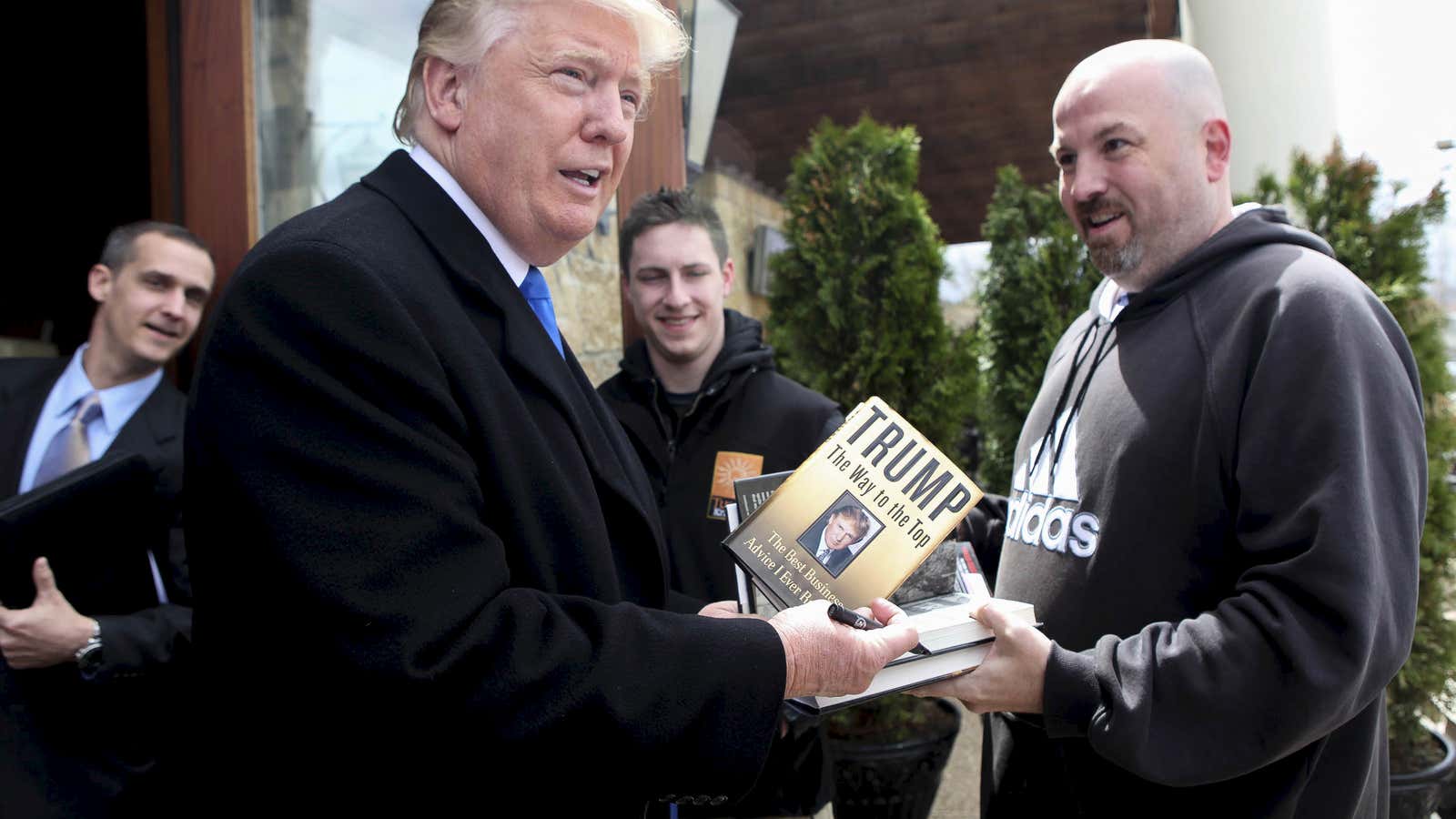American creative industries are trying to find a friend in Donald Trump.
Yesterday, ahead of a meeting with 14 tech executives, an assembly of music industry groups wrote an open letter to Trump imploring him to enforce laws against piracy. This morning, the Association of American Publishers (AAP), comprising 400 book publishers, issued their own letter to the president-elect expressing their concerns, chiefly copyright protection.
The five-page letter (pdf) is a primer to the president-elect on what exactly book publishing is for, and why the industry is concerned with protecting intellectual property. It also lays out the basics of US copyright law.
Allan Adler, the association’s general counsel, explains politely in the letter:
While the Internet and smartphones have added texting, tweeting, emailing, instant messaging, social networking, and blogging to the ways individuals communicate privately with a few or publicly with a crowd, publishing an original work remains a compelling way to tell a story, explain any subject, offer a viewpoint, or spread facts and ideas.
“We felt it important to introduce the industry and its primary concerns,” Adler tells Quartz, “And let them know we’re a presence in Washington.”
The letter brings Trump up to speed on what fiction publishers are for (they “play a critical role in securing a future for writers and books”) and what university presses do (they “advanc[e] quality scholarship that is validated through peer review”). It also explains the Digital Millennium Copyright Act of 1998 (“to encourage online availability of popular copyrighted works”) and Chinese subscription services that circumnavigate licensing fees (which violate US copyright laws and allow “the unauthorized dissemination of electronic copies of academic journal articles”).
Copyright is top of mind for the AAP and American authors and writers more generally. The haphazard policing by tech companies like Google on what can be copied and shared online is seen as a threat to authors’ rights. Online, where mass digitization and distribution of written works happen at lightning speed, a culture of pirating and illegal peer-to-peer sharing has proliferated, as has the expectation that everything should be free.
The AAP has never written a letter to a US president before, and this one comes after eight years of a tech-friendly president in Barack Obama. According to the AAP, the current laws aren’t adequate to protect intellectual property in the digital age. But the AAP thinks there’s a chance they’ll have an ally in Trump.
Trump, although not known as a huge reader, is an author of countless books and a few bestsellers. In addition, ”he is perhaps the best known trademark in the world,” says Adler, “And he himself has not been shy about taking advantage of the rights that he has under federal trademark law to ensure that his trademarks are not infringed upon or diluted.”
Indeed, the Republican Party sees intellectual property as a part of private property, and says ”it is the wellspring of American
economic growth and job creation.” But Trump has a lot to sort through with his new tech friends and foes, so it remains to be seen whether he’ll find the time to be helpful or harmful, or simply do nothing, for what American book makers seek to protect.
